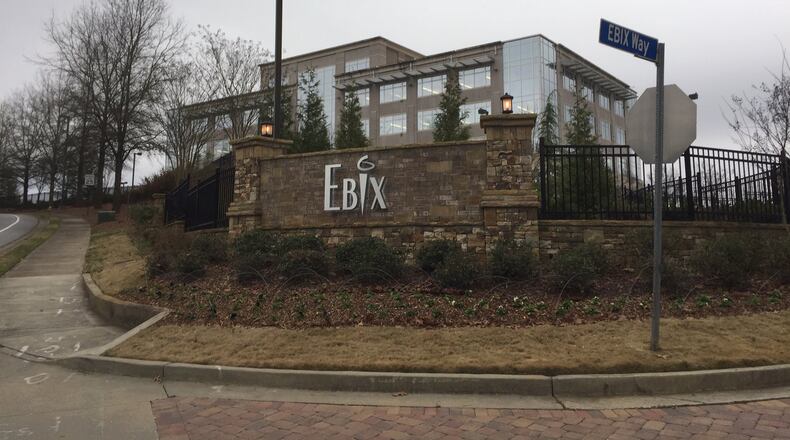A Johns Creek software company has filed for bankruptcy protection as it fends off up to a billion dollars in debt.
Ebix, which has a history of allegations regarding its financial reporting, filed under Chapter 11 of the U.S. Bankruptcy Code, which affords the chance for a company facing a cash crunch to delay debt payments while it reorganizes.
The filing, Dec. 17 in the U.S. Bankruptcy Court for the Northern District of Texas, put the debt at between $500 million and $1 billion.
The company, which has a worldwide business providing software behind many transactions in insurance, financial services, travel and healthcare, did not respond Thursday to phone calls or emails requesting comment.
But it said in its bankruptcy filing that it intends to make up much of the gap between what it owes and what it can pay by selling its North American assets in life and annuities. Those assets would be sold to Zinnia Distributor Solutions for $400 million, according to a filing by Ebix with the U.S. Security Securities and Exchange Commission.
Those assets account for 14.5% of Ebix annual revenue, the company said.
In a statement, Chief Executive Robin Raina said the rest of Ebix’ operations are fundamentally strong. “We believe that the company’s future is bright,” he said.
The company had intended to pay off the debts with a public offering of stock in EbixCash, one of its Indian subsidiaries, which would raise more than that, according to a report by Yahoo Finance.
That IPO has still not been completed.
Raina owns the largest portion of the company, nearly 14% of the shares, according to Yahoo Finance. The next largest shareholders are BlackRock Inc. the Vanguard Group, and Steven D. Lebowitz, it reported.
The company has, according to estimates, more than 9,000 employees, but without a company response, it was unclear how many are in its campus in Johns Creek or whether any layoffs are planned.
The company did say in a statement after the bankruptcy filing that is roughly 200 affiliates outside the United States, as well as its international subsidiaries, are not included in the filing and will keep operating normally.
The company has also issued statements blaming the problem on a combination of high interest rates and the looming maturation of a number of large loans, a need that would require more cash than it has available.
However, Hindenburg Research, a financial forensic research firm, wrote in mid-2022 that the company “displayed hallmarks of fake revenue at its key subsidiary, EbixCash.”
At that time, Hindenburg predicted that the company’s debt load would mean an insolvency crisis in about a year. In July 2023, Ebix restated financial results for EbixCash, removing more than half of its previously claimed revenue, leading to the need for a bankruptcy filing late last year, according to Hindenburg Research.
EbixCash is likely to be sold, according to The Times of India.
The company’s stock price has collapsed since hitting a year high of $31.96 a share in July. Ebix stock dropped sharply in late summer and continued to slide. At mid-day Thursday, shares were selling for $2.35 a share.
The company has faced allegations of financial misbehavior several times before.
In early 2021, shares of Ebix were trading at about $51 when an accounting firm raised questions about the company’s financial reporting. Chicago-based RSM said it did not have the information needed to be sure that certain “unusual transactions” that occurred late last year had been properly accounted for and disclosed, according to filings with the Securities and Exchange Commission. Those transactions involved the company’s gift card business in India.
The company at the time defended its financial health, but Ebix shares lost about 50% of their value and have never again approached that previous peak.
In 2011, a scathing series of anonymous blogs about its financial disclosures triggered a 25% drop in stock price. CEO Raina denied any wrongdoing, blaming the accusations on “short sellers,” investors who are betting on a company’s stock falling.
About the Author
Keep Reading
The Latest
Featured


